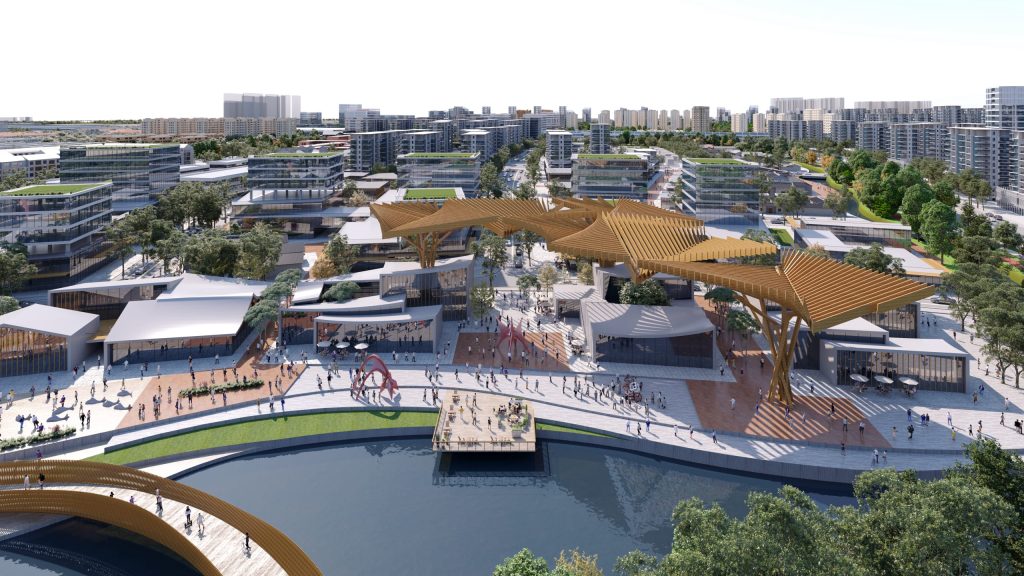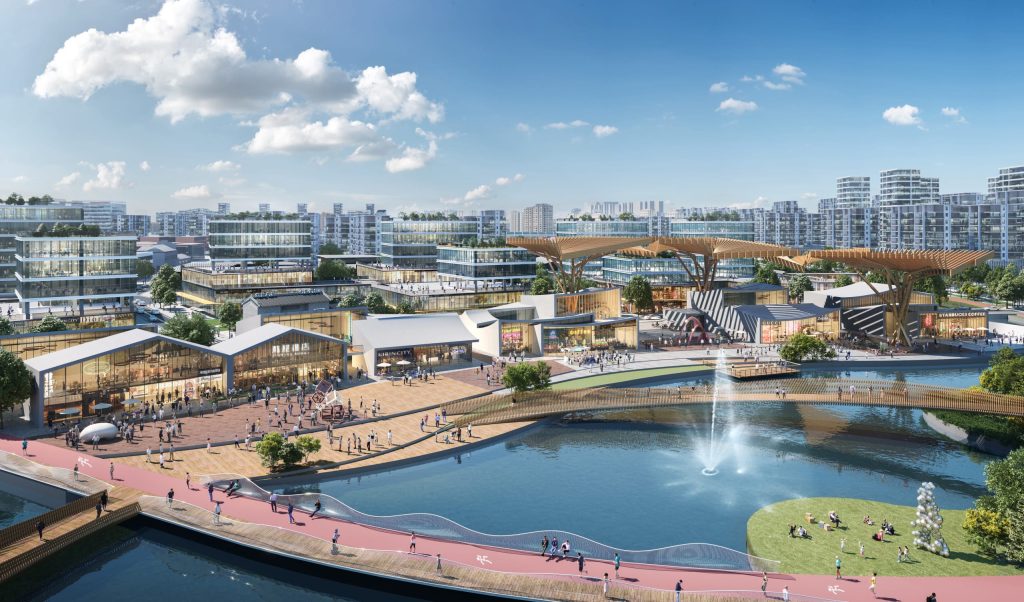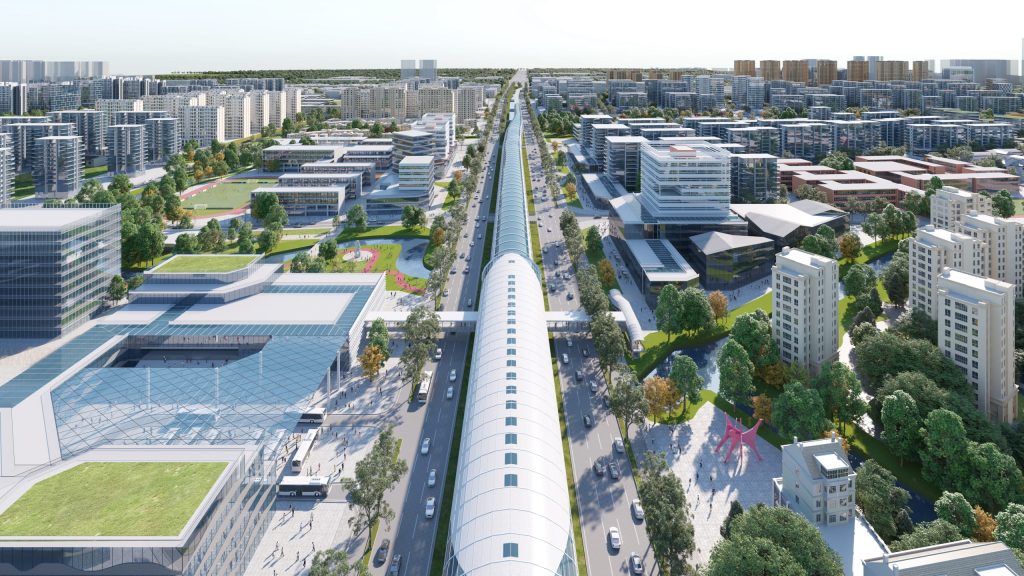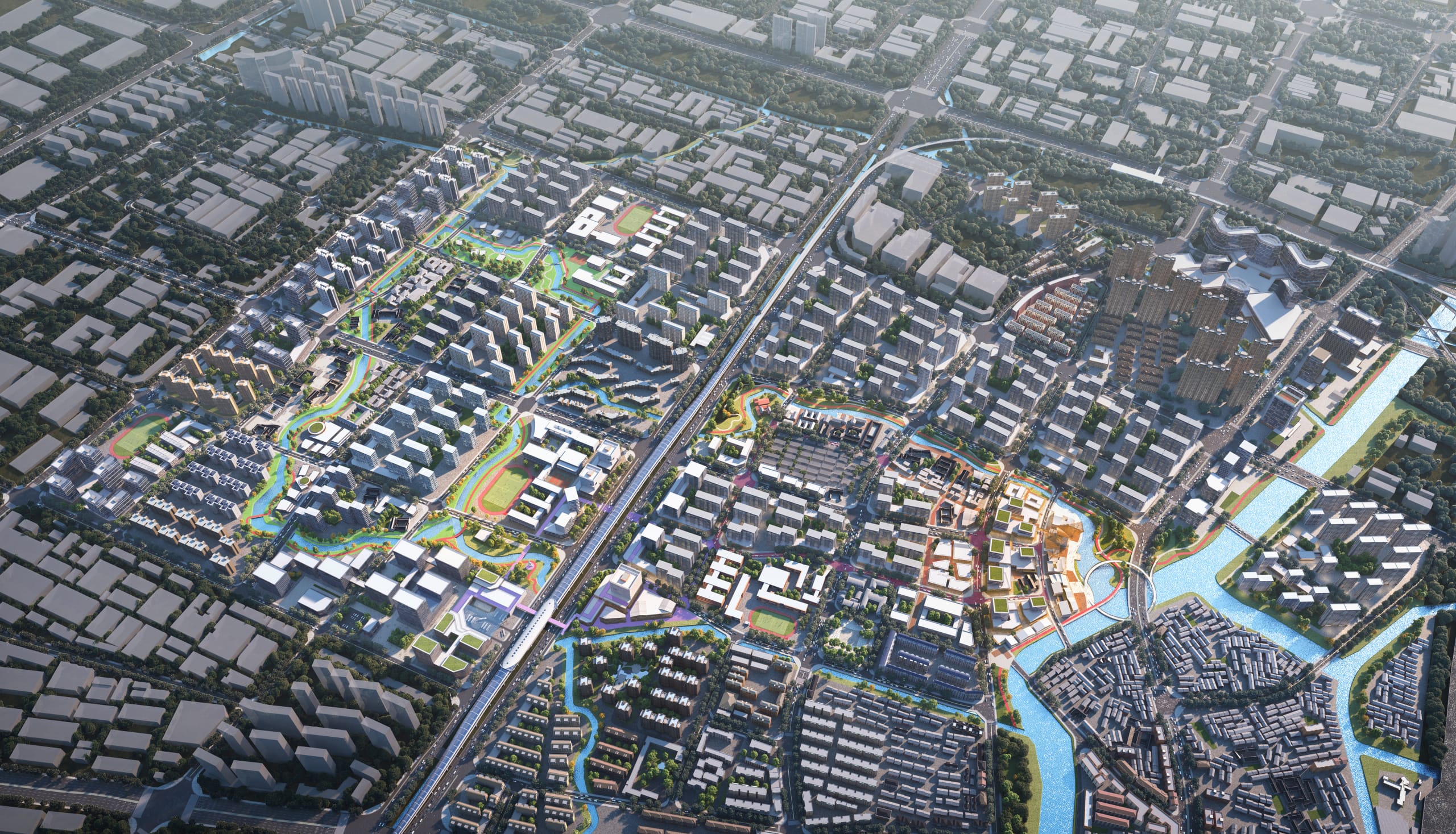项目定位为“浙东·产城融合示范的优质服务引擎、宁波·昭示地域特征的国际水岸空间、北仑·未来品质社区和微商旅打卡地”。基于上位规划存在的问题,有针对性的提出三大设计策略:1.碶头商办用地集中布置;2.围绕现状1号线大碶站的土地置换和动线打造;3.依托河道景观,以未来社区服务设施+文保点展示为主,结合少量商业。方案充分研究当地城市文化和已有空间肌理,经过土地置换和交通梳理,围绕岩河打造宁波北仑全新的市民商业休闲空间“碶头2050”,同时,充分考虑城市更新的实操性,对分期开发和资金测算做了专项研究。
The project is positioned as a high-quality service engine for the integration of industry and city in eastern Zhejiang, an international waterfront space that showcases regional characteristics in Ningbo, a future quality community in Beilun, and a micro business travel check-in destination. Based on the problems existing in the upper level planning, three targeted design strategies are proposed: 1. Centralized layout of commercial and office land in Qitou; 2. Land replacement and route construction around the current Daqi Station of Line 1; 3. Based on the river landscape, the focus will be on showcasing future community service facilities and cultural heritage sites, combined with a small amount of commercial activities. The plan fully studies the local urban culture and existing spatial texture, and through land exchange and transportation sorting, creates a new commercial and leisure space for citizens in Beilun, Ningbo, called “Qitou 2050” around Yanhe. At the same time, it fully considers the practicality of urban renewal and conducts special research on phased development and fund calculation.




